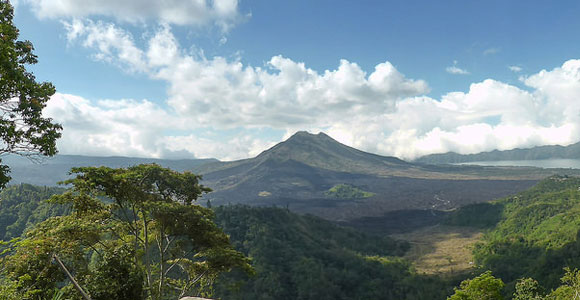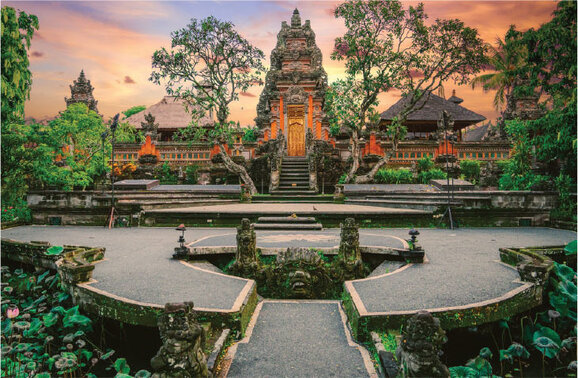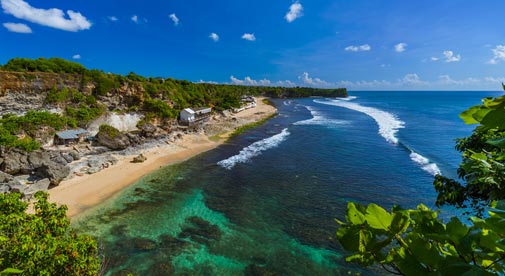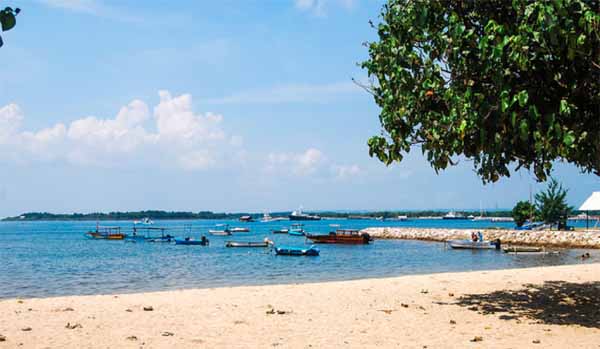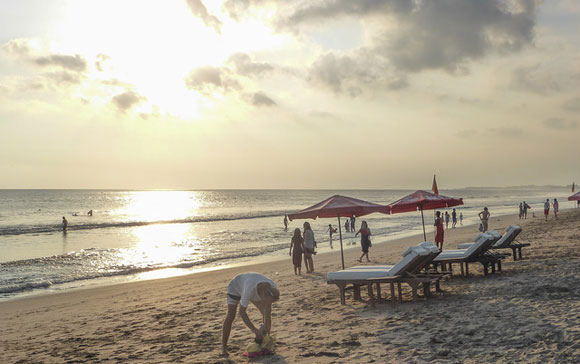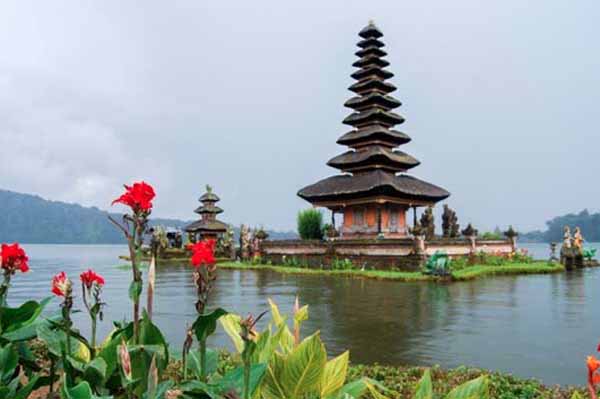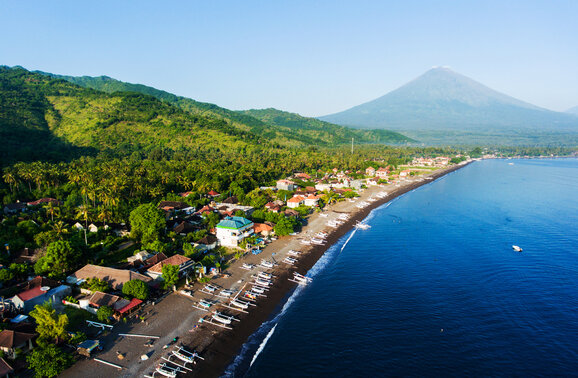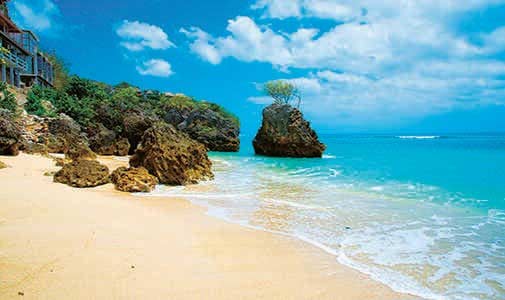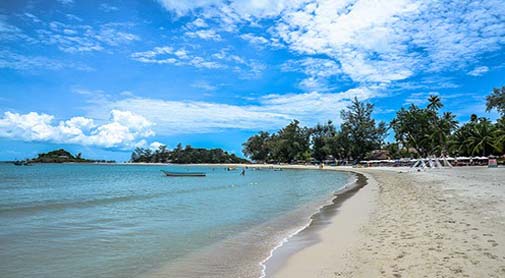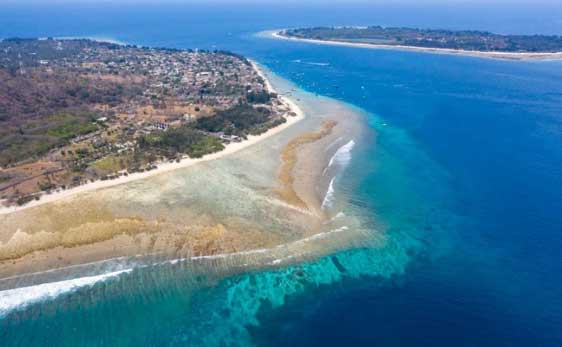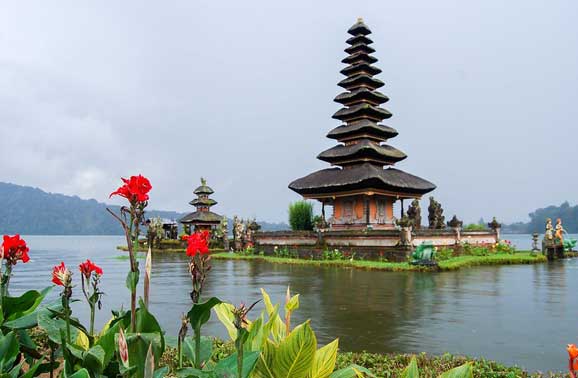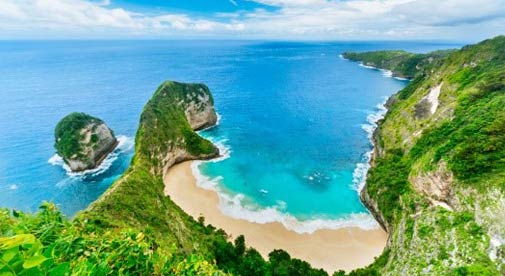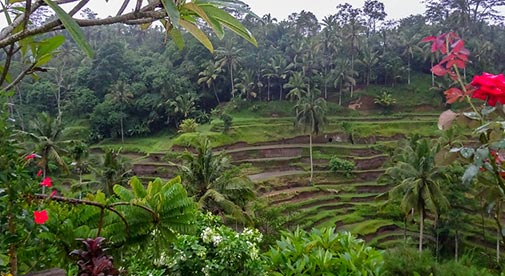The Ideal Island-Hopping Destination
Stretching across the equator for more than 3,100 miles, Indonesia encompasses more than 17,000 islands, only two-thirds of which are inhabited. Five main islands and 30 smaller archipelagos are home to the majority of the population. The main islands are Sumatra, Kalimantan, Sulawesi, Irian Jaya, Bali, and Java, home to 60% of the country’s population.
Indonesia’s population of over 253 million makes it the world’s fourth-most populous nation, with the island of Java the most populous island in the world (141 million, 2012 est.) and one of the most densely populated areas in the world. Indonesia includes numerous related but distinct cultural and linguistic groups, many of which are ethnically Malay.
The nations’ capital, Jakarta, is the main gateway to Indonesia and is a contrast of modern Western architecture and traditional Indonesian culture. This is a country rich in art and culture. which are closely intertwined with religion and age-old traditions brought by Portuguese and Dutch colonists.
Bali is the rock star of Indonesia’s 18,307 islands, and people from all walks of life are starting to whisper about this fabled place. With its tropical, semi-humid climate, and temperature varying from landscape to landscape, there is something for everyone in Bali.
From trendy cafés to five-star restaurants to quiet coastal towns, this tourist hot-spot has it all. Of course, there’s more to Bali than just wonderful nature, beautiful beaches, great surfing, and tasty food. Its friendly locals have maintained their traditional ceremonies and laidback way of life too.
Bali is like no other destination in the world. There is a spiritual energy surrounding the island that immediately relaxes you and improves your mood. Nicknamed “the Island of the Gods”, it has a history going back 2,000 years. You’ll find a rich mix of Chinese, Indian and European cultures.
Southern Bali is split into districts and villages, and, as the island population has grown over the years, these independent districts and villages have merged into two very distinct geographical areas—southeast and southwest Bali.
The southwest of the island is full of cafés, restaurants, and stylish shopping boutiques. The southeast is quieter, older, and more exclusive. Bali’s capital, Denpasar, is farther east and inland, while Bali’s oldest upscale resort area, Sanur, is a mature beachside town with good restaurants, quiet cafés, and white-sand beaches.
Inland, the town of Ubud, and the lush region surrounding it, is the cultural heart of Bali. The weather here is cooler, and you’ll find an international community of expats savoring the best of the island’s traditions, crafts, and art.
The north of the island is dry and volcanic. This area attracts adventurous expats, and has possibly the lowest cost of living in all of Bali. There are some great marine parks in the north and good diving sites where the main activity is dolphin-watching. The south of the island, by comparison, is lush and green, has good surf, and lots of smaller islands to explore just offshore. It is also where the majority of great restaurants and stylish cafés are located.
Most of Indonesia’s territory remains unexplored, concealing a wealth of cultures and a myriad of landscapes. From the oceanic rice fields and ancient sultanates of Java to the pristine alabaster beaches of Maluku, to the jungles of Sumatra, Kalimantan, and Papua with their impish monkeys, stoic sun bears, leopards, orangutans, and remarkable marsupials, Indonesia has a lot to offer.

